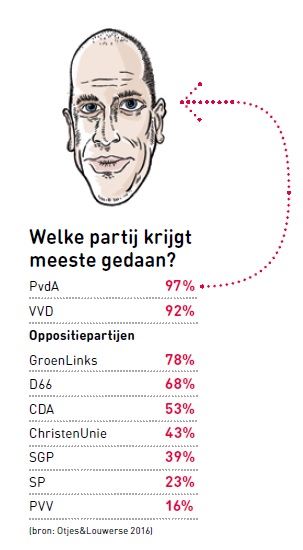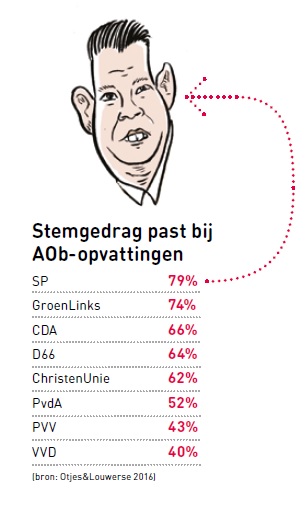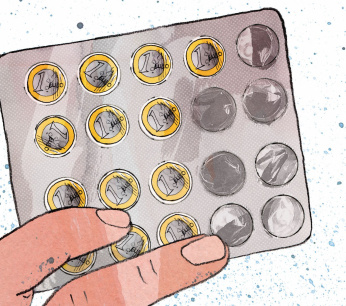Education policy often receives opposition support
The cabinet's education policy often receives support from the opposition. GroenLinks and D66 are the most successful opposition parties, they receive the most support.
It's called coalition and opposition, but those two sides more often agree than disagree. A cabinet with a narrow majority in the House of Representatives and a minority in the Senate must regularly seek support. And these were given to Minister Jet Bussemaker and State Secretary Sander Dekker. D66, CDA and SGP most often voted in favor of the government coalition. PVV and SP the least.
Educational motions and legislative changes
In the run-up to the elections, the AOb have the voting behavior of political parties analyzed from September 2012 to August 2015. The research was carried out by Simon Otjes (Documentation Center for Dutch Political Parties of the University of Groningen) and Tom Louwerse (Institute of Political Science, Leiden University).
What was not assessed in the study was Rutte II's education policy, but only the reactions to it in the House of Representatives. In three years, parliament discussed 71 amendments to legislative changes and 480 motions in the policy area of the Ministry of Education, Culture and Science.
Especially SP, D66 and PvdA submitted many motions or amendments, around a hundred. Not all themes were relevant, such as those on culture and media topics. Ultimately, 321 educational motions and legislative changes remained in the study.

It goes without saying that the governing parties most often succeed in getting their proposals for amendment or opinions adopted, as they have a majority. But, it turns out, PvdA and VVD do not always support each other. They often agree when it comes to workload and testing, but completely disagree on the subject of backlog.
In a quarter of the cases, they clash with motions about employment, education collective labor agreements, quality of education and appropriate education.
Successful
GroenLinks is the most successful in the opposition. The party submits a relatively small number of motions and proposals for legislative changes, but manages to get nearly three-quarters of them through the Lower House. D66 also scores high. The party makes many proposals and is also very successful, two thirds of the D66 plans received a majority. The SP, champion of submitting motions, only got its hands up on a quarter of the proposals.
The voting behavior in the Chamber of SP and GroenLinks best suits the AObpolicy, that of the VVD least.
Especially when it comes to workload, funding for education, the collective labor agreement, employment and disadvantages, opinions clash at least in three quarters of the cases. Two-thirds of the voting behavior of D66, CDA and ChristenUnie runs parallel with policy views of the AOb.

Download the Study 'How do parties in the House operate in the field of education'


